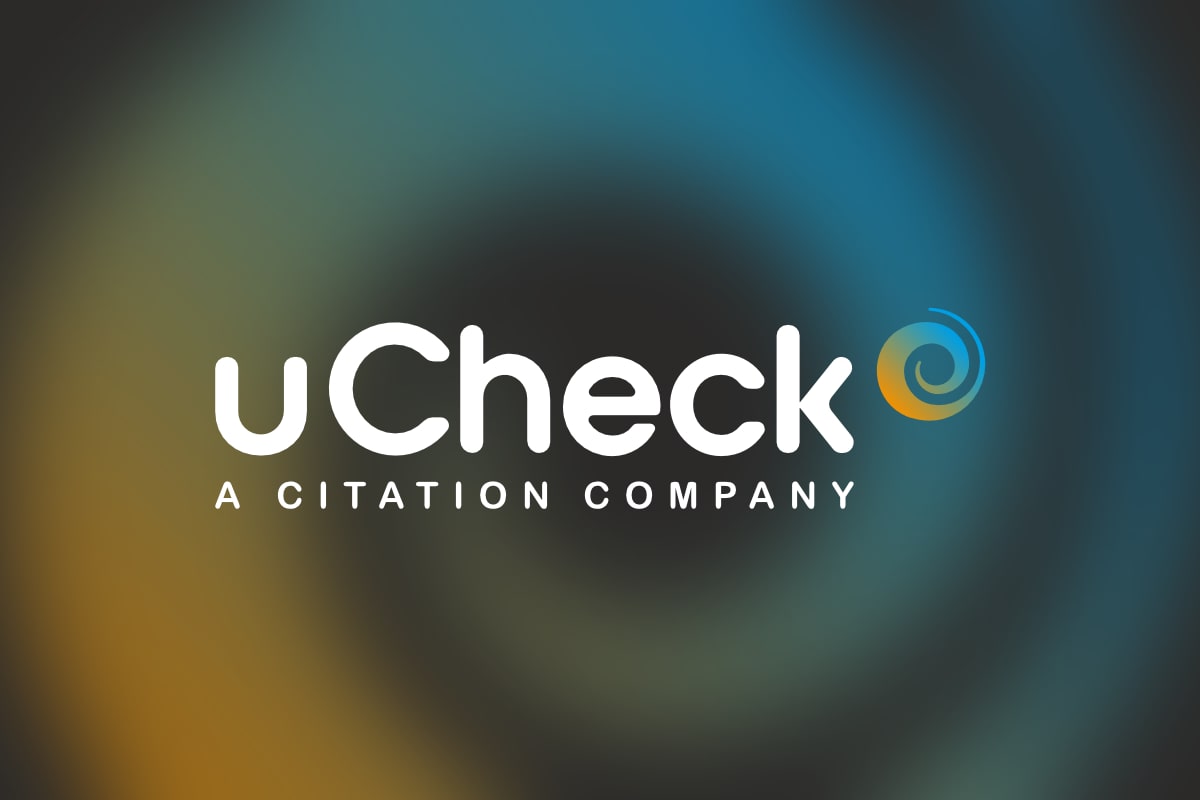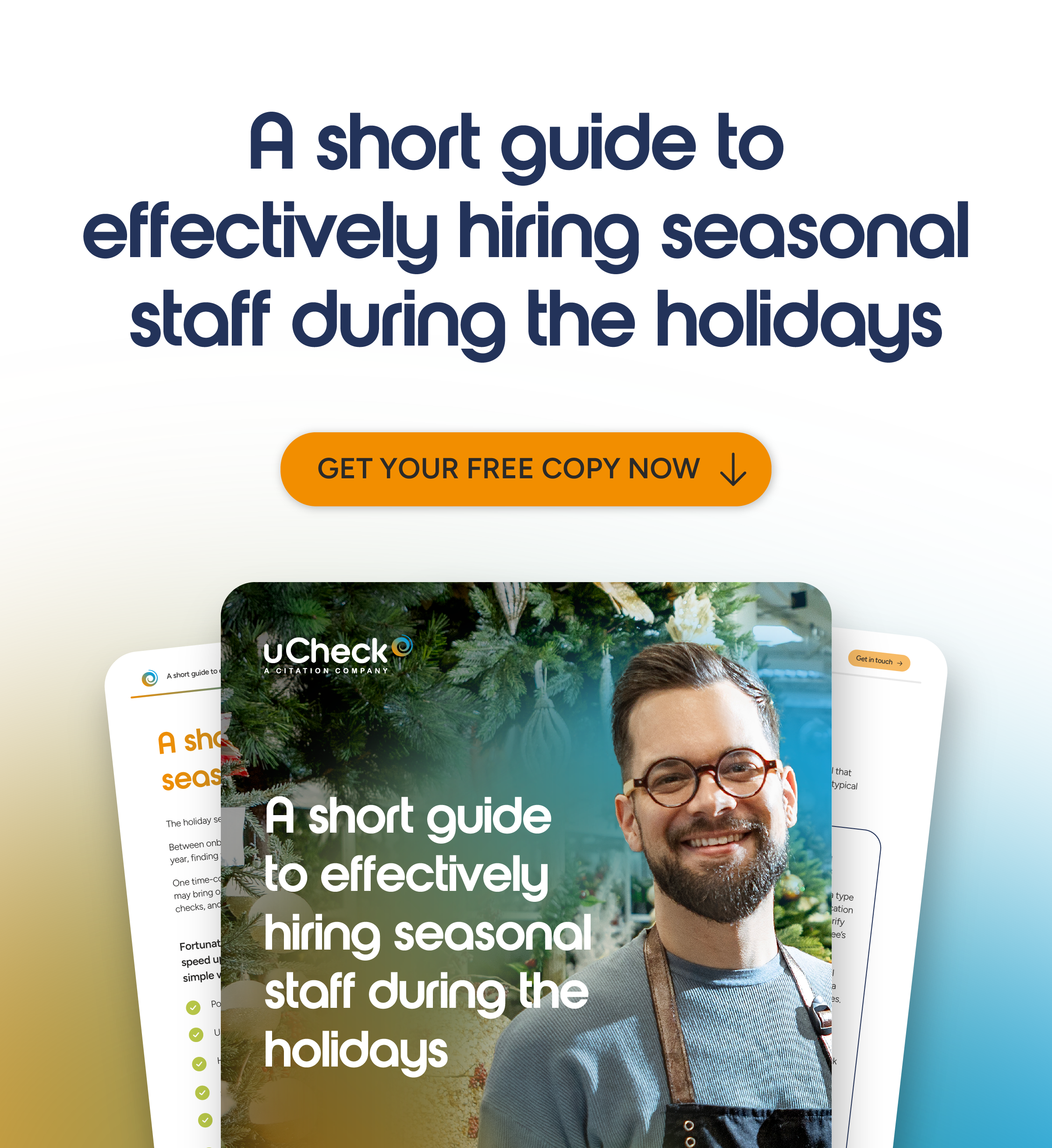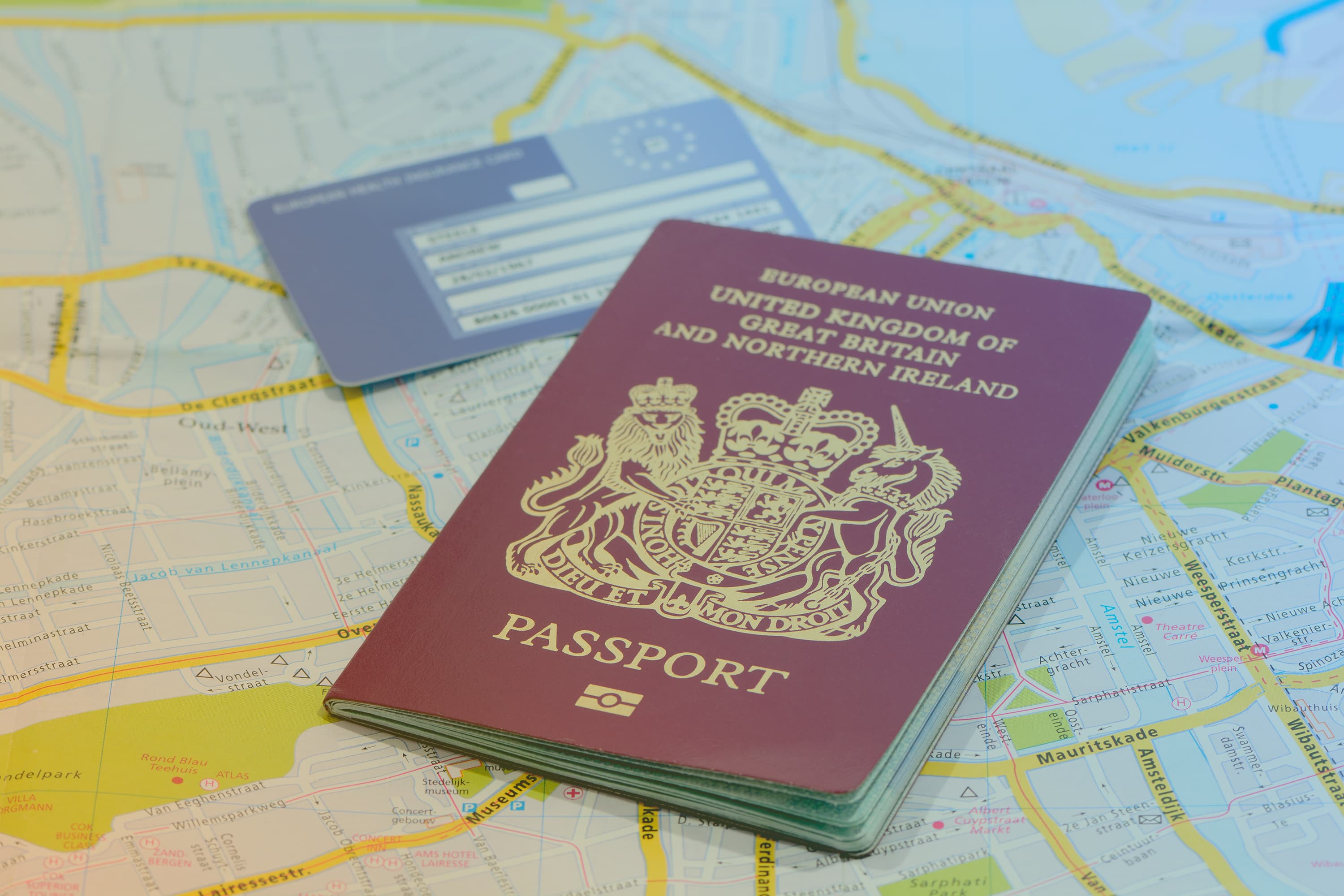Here at uCheck, we’re often asked what the different types of DBS checks are, and how to know which one is right for an applicant.
If you’re looking to request DBS checks for your employees, you may find yourself asking what types of DBS checks there are and what level of DBS check you may need.
To help answer all these questions, we’ve put together this simple guide to help you figure out which level of DBS check you need and how to get started.
What is a DBS check?
A DBS check (Disclosure and Barring Service check) is used to help employers check candidates’ criminal record history. This allows them to make safe recruitment decisions, especially for highly sensitive job roles. It helps determine if someone’s suitable for certain positions, such as those that involve working with children or vulnerable adults in industries like healthcare or education.
Before 2012, these checks were carried out by the Criminal Records Bureau (CRB), so you might still hear the term CRB checks every now and then.
Essentially, a DBS check provides a certificate detailing the individual’s criminal record, which will include the following:
- Convictions – This will show when someone has been found guilty of a crime in court, either after a trial or by pleading guilty.
- Cautions – This will be a formal warning given by the police for a minor offence. It’s not a conviction, but it’s recorded on the Police National Computer (PNC).
- Reprimands – Reprimands and final warnings were formal warnings given to under-18s before 2013. Although they’re no longer issued, they may still appear on Standard and Enhanced DBS checks if the offence was serious or recent.
Outside of the formal reprimands and final warnings for young people, police officers might also give informal verbal warnings for very minor matters where no further action is taken. These informal warnings are generally not recorded on the PNC and would not appear on a DBS check.
Under the Rehabilitation of Offenders Act 1974, some convictions and cautions become ‘spent’ after a certain period, meaning that, in many situations, the individual doesn’t legally have to disclose them. However, Standard and Enhanced DBS checks disclose both spent and unspent records, subject to filtering. Basic DBS checks only show unspent convictions and conditional cautions.
What shows up on a DBS check will depend on the type of DBS check you apply for. Don’t worry, we’ll talk you through the different levels of DBS checks available in just a moment.
Why do we have DBS checks?
We know DBS checks can sometimes feel like just another step in the process; they take time, resources, and a little bit of admin. So, it’s natural to ask: are they really necessary?
In short, yes. A DBS check plays a vital role in helping you make safe, informed hiring decisions. It protects your business, the people you work with, and the applicant, too, by making sure everyone’s clear on the facts of a person’s past from the start.
Here’s why they matter:
- Protecting vulnerable groups: This is the most important reason for DBS checks, especially at the Standard and Enhanced levels. These checks help prevent individuals who may pose a risk of harm, abuse or neglect from working with children or vulnerable adults. Enhanced checks can also include relevant information from local police forces, giving employers a clearer picture when it’s needed most.
- Supporting public safety: DBS checks aren’t just for roles working directly with vulnerable people. They also help organisations across a wide range of sectors make better-informed recruitment decisions, especially in positions that involve responsibility, access to sensitive data, or financial oversight.
- Encouraging safer recruitment practices: DBS checks give you a reliable way to assess whether someone’s suitable for a role. It means you’re not just going on instinct: you’ve got the information to back up your decision and reduce the risk of hiring someone who isn’t the right fit.
- Meeting legal and regulatory obligations: In many sectors, DBS checks are more than just good practice; they’re a legal requirement. For roles involving regulated activity with children or vulnerable adults, employers have a statutory duty to carry out the correct level of checks. Skipping this step can have serious legal consequences.
- Building trust: By carrying out proper vetting, you’re sending a clear message to service users, customers, and the wider community that you take safeguarding seriously. It builds confidence in your organisation and the people who represent it.
- Providing the correct information: DBS checks provide relevant, structured information about an individual’s history. For roles where integrity, responsibility, and trust are key, this insight is invaluable.
So while DBS checks might add an extra step to your recruitment process, they’re there for a reason. They help protect people, safeguard your organisation, and make sure everyone has the information they need to move forward with confidence.
What are the different types of DBS checks?
There are three main levels of DBS checks available in the UK, which are appropriate for employment vetting.
The three levels are:
To obtain either a Standard or Enhanced DBS check, the individual in question must be eligible for the check.
For an employer to request a higher level of check, a potential employee must be working in specific roles, such as around vulnerable groups.
Only employers can request Standard or Enhanced DBS checks.
If an individual is not eligible for these types of checks, their employer, or the individual themselves, can request a basic disclosure.
Let’s explore each of these checks to help you determine which level is most suitable.
Standard and enhanced DBS checks
Standard and Enhanced DBS checks will detail both spent and unspent convictions, as well as any cautions, warnings or reprimands an applicant has on their record (as long as they’re not protected).
An Enhanced DBS check will also include the option for the police to include any information they hold and deem relevant.
For an individual to be eligible for either of these checks, their role must be outlined in the appropriate legislation.
To be entitled to a Standard DBS check, an applicant’s role must be included in the Rehabilitation of Offenders Act 1974. For an Enhanced check, it must be included in both this Act and the Police Act 1997.
In simple terms, those who are eligible for an Enhanced DBS check will most often be working with children or vulnerable adults. The DBS workforce guides provide further information on the types of positions that entitle an individual to this higher level of check.
Enhanced DBS Checks
With Enhanced DBS checks, employers also have the option to include a barred list check if applicable. This means a check will be made against either the children’s or vulnerable adult’s barred list, or both, to confirm whether the applicant is barred from working with these vulnerable groups.
To be eligible for a barred list check, an individual needs to be engaging in regulated activity with either of these groups. Barred list checks then need to be requested as applicable.
Standard DBS Checks
Eligibility for Standard DBS checks is slightly harder to define. There’s no description of the type of jobs which entitle people to this check.It’s more of a list of specific professions which require the disclosure, such as:
- Accountant/lawyer on entry to the profession
- Veterinary surgeon on entry to the profession
- Specific roles in courts/prisons
To see if a certain position is entitled to the check, you can use the DBS eligibility tool, which will ask you a series of questions to help determine what the job role entails. Alternatively, get in touch with us at uCheck – we’re always happy to help.
Basic disclosure
If an individual is not eligible for a Standard or Enhanced DBS check, then the employer, or the individual themselves, can request a basic disclosure.
This is not a DBS check, but a criminal record check offered by another governing body.
This check will detail any unspent convictions (recent/serious) the applicant may have. As these convictions are not yet classed as spent, any employer is entitled to ask for this information, meaning there’s no eligibility criteria to obtain this check. As a result, individuals can also obtain this disclosure themselves.
This check is often required for personal licence applications and for some visa applications.
However, it’s important to note that this check isn’t suitable for positions which are entitled to a higher level of DBS check, as it won’t detail the same extent of criminal record information.
Who can apply for a DBS check?
When it comes to applying for a DBS check, an employer would usually take your information and go through the process, but there are some instances where you can apply for one yourself. Let’s take a look at who can apply for each type of DBS check:
- Basic DBS check:
- Who can apply? Anyone aged 16 or over can apply for a Basic DBS check for any reason. This includes individuals checking their own records or employers checking a potential employee.
- How to apply? Individuals can apply directly to the DBS online or through a “Responsible Organisation” like uCheck – who’s registered with the DBS. Employers can also apply for a basic check on behalf of an individual with their consent through a Responsible Organisation.
- Standard and Enhanced DBS checks (including Enhanced with barred Lists):
- Who can apply? Individuals cannot apply for Standard or Enhanced DBS checks themselves. These checks can only be requested by an employer or an organisation for specific roles that are eligible for these higher levels of checks.
- Eligibility: The eligibility for Standard and Enhanced checks is determined by the nature of the role. Generally, these checks are for positions involving:
- Working with children or vulnerable adults (“regulated activity”).
- Positions of trust (e.g., in finance, law, security).
- Certain licensed professions.
Ultimately, most, if not all, DBS checks should be conducted by the employer. If you’re self-employed and need a standard or enhanced DBS check, you can ask the organisation that wants to contract your services to apply for the DBS check on your behalf.
Ready to start your DBS checks?
If you’re ready to simplify and speed up your DBS checks, then uCheck offers a fast and reliable online solution for Basic, Standard and Enhanced DBS checks to help you rapidly screen candidates and accelerate your hiring process.
Our fast turnaround means you can get your results back faster than national average times, providing you with the essential information to confidently grow your business.
Join the nearly 30,000 customers who trust uCheck for their screening needs. Get in touch today to discover how we can help, or sign up online to start your checks now!







